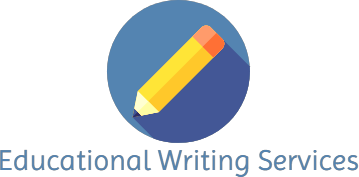By Daniel Holloway, Media and Copy Editing Intern
As an English Major and college graduate, I have written my fair share of essays 一long essays, short essays, reading analyses, journal entries一and, after a while, the process grows monotonous. I have searched for effective ways to focus on my work, but after trying them, none last more than a few days before I begin to find flaws. For example, television shows, as well as movies, have ongoing plots, characters, and visual motifs to follow that a casual watch won’t allow me to catch. This issue is most prominent with first-time viewings, as my brain simultaneously tries to learn about new characters and their stories while also thinking of what to write. Sporting events also require a high level of investment, as I always want to see which team will win and how. Upbeat genres of music such as rock, hip-hop, and pop often grow to be too melodically intense for writing. Very energetic songs or the climaxes of certain songs don’t lend themselves to the peace of mind needed to come up with an idea. However, jazz music continuously shines as the best distraction for my work. It is light and soothing while still having enough variation to keep me attentive. Another potential candidate fails in the latter criterion, but I will write more on that later.
The type of distraction one needs resides in the individual, so I will refrain from calling television a completely invalid aid in focusing. However, writing is a visual medium in itself, so I do not see the need to overload my visual palette while still trying to listen for what is being said or, worse yet, further stretch my ocular capacity by reading the subtitles. Conversely, music needs only the ears to be effective.
Jazz music, or at least the best kind to write to, typically has a consistent drum pattern and an accompanying bassline paired with one or more solos. Piano, saxophone, trumpet, and even drum solos are among the many instruments whose solos help to make jazz songs gradual without being overwhelming. A great example of such progressions is arguably the greatest and most popular jazz album of all time, Miles Davis’ Kind of Blue. My favorite track, “Blue in Green,” features two of the greatest jazzers of all time, Davis and John Coltrane, taking turns on the trumpet and saxophone, respectively, soloing on the bass and drums. The piano work of Bill Evans underscores, then intercedes the wind sections, moving the track along beautifully. Works like these make writing a joy, as I always find my words flowing just as naturally as the playing of Davis’ band.
Another key element of jazz’s fit for writing is just that一words一or, rather, its lack thereof. Most other genres of music have words, which, especially in the case of more lyrically inclined genres like rap or some pop, impede my ability to form diction of my own. While expressing myself isn’t impossible, why allow the chance of hindrance when artists like Herbie Hancock, Thelonious Monk, and Bobbi Humphrey exist?
Any modern piece about auditory distractions would be remiss not to mention the current juggernaut of the topic, which is lofi hip-hop. It is a worthy adversary to jazz. It is easy on the ears, is very rhythmic, and many beats even use jazz songs for samples. I have two concessions, though, that keep the genre from being the best to write to. For one, the most popular channels that stream lofi hip-hop are often live, meaning that writers are stuck with whatever happens to play as they write. Admittedly, this is a minor complaint, as one could create their own playlist on Youtube. My major gripe with lofi is that the beats are much more repetitive than jazz music. As I’ve mentioned before, though the drumming in jazz can sometimes be very simple, the playing works in tandem with the solos and other instrumentation to make the constant stream of creativity that lofi hip-hop merely borrows in parts.
With a perfect combination of creativity, easy listening, and rhythm, all without being a multi-sensical disturbance, jazz music stands above all other contenders as the best complementary medium while writing. If you are wondering which records best serve this purpose, here are 5 albums I recommend for any writer looking for something to help them along:
● Floating Points, Pharoah Sanders, & London Symphony Orchestra - Promises
● John Coltrane - My Favorite Things
● Herbie Hancock - Fat Albert Rotunda
● Wes Montgomery - A Day in the Life
● Thelonius Monk - Underground




